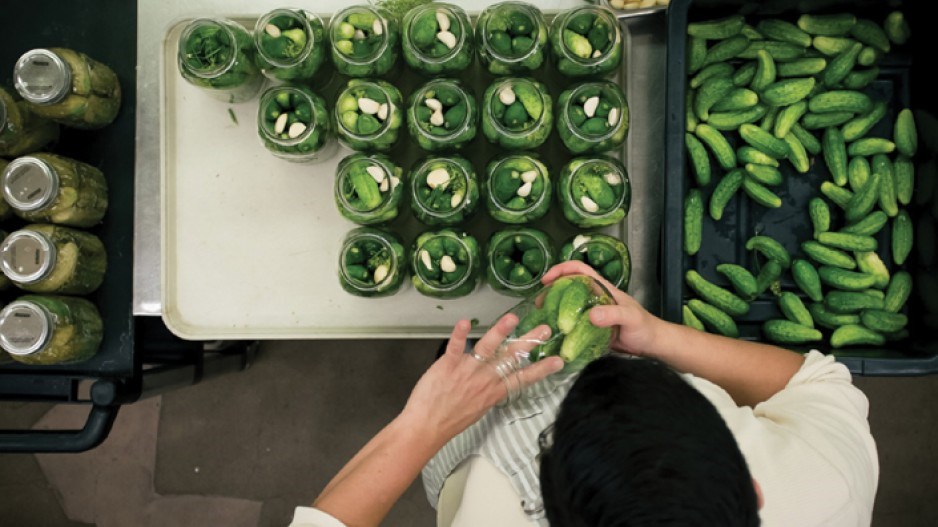Entrepreneurs are making a meal out of the consumer trend toward foods made without artificial preservatives, colours or other unnatural additives.
The terms “organic” and “gluten-free” are common currency among Vancouver restaurateurs when decribing their fare, and consumer demand pushes many of them to take extra steps to use local ingredients, said Forage executive chef Chris Whittaker.
Forage makes no claim to use only 100% natural ingredients, but Whittaker is so passionate about making food from fresh ingredients that he makes pickles from local cucumbers and handmakes mustard by crushing mustard seeds and adding vinegar, beer and other ingredients.
Longtime friends and new business partners Aaron Harowitz and Zack Silverman have found a healthy market for their all-natural Walter caesar cocktail mix. They launched Vancouver-based Brutus Beverages Inc. about seven months ago and watched sales soar. They now sell the mixes to dozens of restaurant owners across Canada and are in retail stores such as Choices Markets and Meinhardt Fine Foods.
Terry Bremner, who owns Delta's Bremner Foods Ltd., sells 100% pure, not-from-concentrate cranberry and blueberry juices to grocery stores and to upscale Vancouver restaurants.
“My juice sales are up about 30% in the first five months this year compared with the same time last year,” Bremner said.
One of his restaurant customers, Hawksworth chef and owner David Hawsksworth, is also trying to capitalize on the trend toward all-natural foods.
“About the only artificial colouring we would use might be in the macarons,” he told BIV. “Other than that, we're 100% all-natural.”
The success of small-business owners in selling niche natural-food products has spurred larger fast-food chains to get on the bandwagon with bold claims about the purity of their products. But while the opportunity for higher sales is clear, so, however, is the risk to companies' brands if they make promises that are later attacked for being misleading.
“There's a danger if you get caught out of bounds,” said Simon Fraser University marketing professor Lindsay Meredith. “If you say something about your product, it bloody well must be right.”
A&W Food Services of Canada Inc., for example, suffered a backlash after it launched a campaign last year that touted its burgers as containing beef raised “without added hormones or steroids.”
Critics, such as Canadian Cattlemen's Association science director Reynold Bergen, called the description “misleading” because meat necessarily contains hormones and any “added hormones” would be minuscule by the time the meat is consumed.
“To get exposed to the same amount of estrogen as an average woman produces in a day, you would have to eat three million hamburgers,” he told Business in Vancouver.
But A&W's announcement comes as other fast-food chains tweak recipes and make claims about going “all natural.”
Panera Bread, which has long-term plans to expand to B.C. but so far has outlets only in Ontario, announced earlier this month that it will remove all artificial additives, such as colours, flavours and sweeteners, from its bakeries in the United States by the end of 2016, though they are not yet ready to make that pledge in Canada, its Canadian divisiion spokeswoman, Diane Conconi, told BIV.




